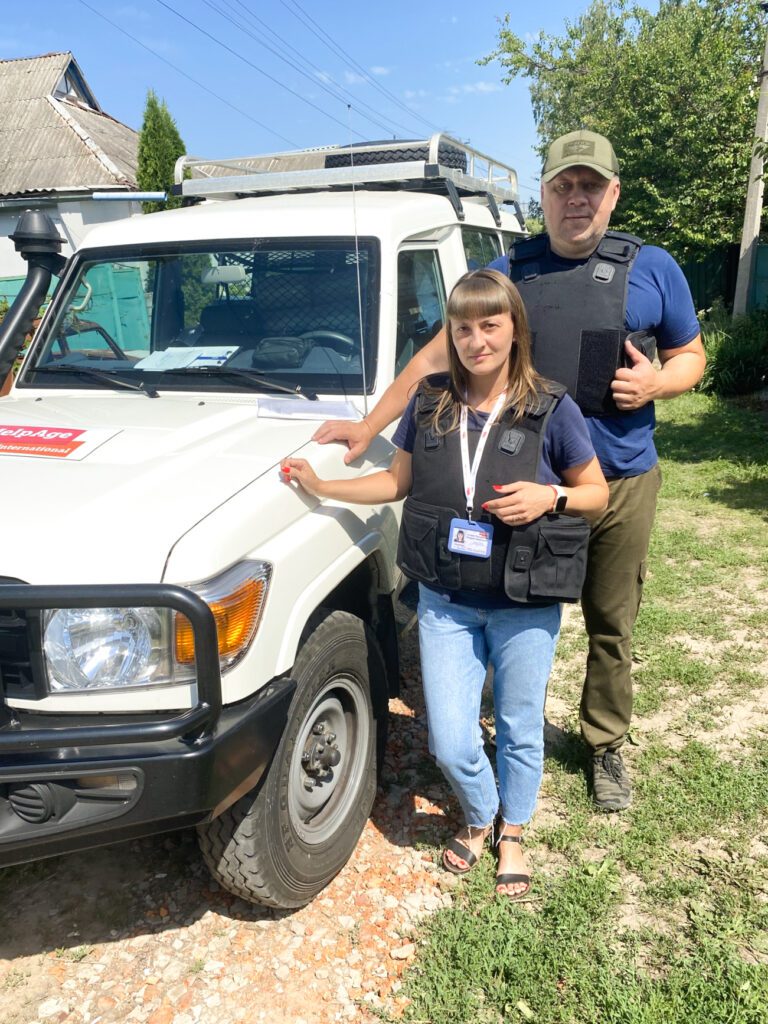2023 went down in history as the deadliest on record for humanitarian workers—selfless individuals who risk everything to provide life-saving assistance in the world’s most perilous regions. Alarmingly, 2024 is on track to be even worse.
In most cases, the majority of humanitarian assistance is provided by local actors. Humanitarian workers are often people from the impacted communities—and they are the majority of those killed or injured.
So far, 192 humanitarian workers have been killed in 2024, 119 of whom were local staff.
Chilling Numbers
At least 278 aid workers have been killed in Gaza since the October 7 assault in Israel, according to the UN. Since the beginning of the full-scale invasion in Ukraine in February 2022, 16 humanitarian workers have been killed and 45 others injured.
These harrowing statistics expose an undeniable truth: The world is failing its humanitarian workers, and by extension, the millions of at-risk people they serve.
Despite 75 years of internationally recognized laws designed to regulate armed conflict conduct and limit its devastating impact, these laws are being flagrantly violated.
Such violations continue unabated, unchallenged, and unchecked, casting a dark shadow over our collective humanity.
“The situation (in Gaza) is catastrophic. Bombings and killings occur daily. What matters most to me are the humanitarian, social, and living conditions of the people – especially older people – not the politics and warfare. Yet, the only solution to end this conflict is through politics.”
– Dr. Yehia Abed, Director of operations at HelpAge network member Juzoor for Health and Social Development, Gaza
The reality is stark and distressing. While humanitarian workers strive to deliver hope in the darkest of places, they are being targeted, attacked, and killed in unconscionable numbers.
Civilians, too, are caught in the crossfire, paying the ultimate price for the world’s collective failure to enforce the very laws that are meant to protect them.
Meanwhile, the perpetrators of these heinous acts continue to evade justice, operating with impunity as if the lives of humanitarian workers and civilians are mere collateral in the relentless march of war.
This is not just a failure of international law; it is a failure of humanity, of responsibility, and of leadership.
The current state of affairs cannot be allowed to continue. Attacks on humanitarian workers and humanitarian assets must stop. Attacks on civilians and civilian infrastructure must stop. The world must no longer turn a blind eye to these atrocities.
The safety of humanitarian workers—as well as the protection of civilians—is non-negotiable.
“Humanitarians in Ukraine risk their lives daily to reach those in need. Since the full-scale invasion, our Ukraine team has supported hundreds of thousands of older people, who have been hit the hardest. They’ve done this despite the danger to their lives and health, with many also enduring the personal toll of the war. I am inspired by and deeply grateful for their courage and dedication. “– Timothy Bainbridge, HelpAge Country Director in Ukraine
What Is HelpAge Doing?
HelpAge is working to reform the humanitarian support system to be more inclusive of older people.
In emergency responses, older people are often overlooked and excluded due to a lack of consultation and data collection, leading to outdated assumptions about their needs.
Humanitarian aid typically doesn’t cater to their specific challenges, such as mobility issues, health conditions, or nutritional needs.
Emergency resources and recovery programs are generally designed without considering the unique barriers faced by older people, resulting in their marginalization during crises.
HelpAge’s work includes:
- Collaborating with governments and international organizations to ensure that older people are consulted and their needs are addressed in all humanitarian activities.
- Collecting evidence on how crises impact older people and identifying the barriers they face in accessing support.
- Developing strategies that demonstrate how to protect older people’s rights during emergencies.
- Offering technical advice and support to humanitarian organizations on how to include older people in their work.
Tetiana Nazarenko, Project Officer, lives in Kharkiv, one of the most affected areas in Ukraine. She had to flee her native town of Sloviansk, where she had been providing humanitarian assistance to displaced people since 2014. As part of HelpAge, she now supports older people living in the most dangerous areas of the region.
“You feel this danger everywhere here, especially as you approach the frontlines. But there are still people living there! It’s mostly older people, many of whom have no one to take care of them. The pain in the eyes of someone whose house was just destroyed is not a sight you can ever forget. Humanitarian aid is about providing relief and hope that they will not be left behind.”
74-year-old Olha is one of the people Tetiana supports. Aid was not able to reach her during the months under occupation in 2022.
“We are happy we can now receive help. We felt cut off from normal life, living alone here, under danger. Thanks to humanitarian workers, we now know we will not be left to fend for ourselves.”

As we honor the courage and commitment of humanitarian workers on this day, the international community must also recommit to the principles they embody: humanity, impartiality, neutrality, and independence. Let us demand accountability and justice. Let us insist on the protection of those who, in the face of unimaginable danger, refuse to turn away from those in need.
The time to act is now. Together, we can and must make a stand for humanity.
